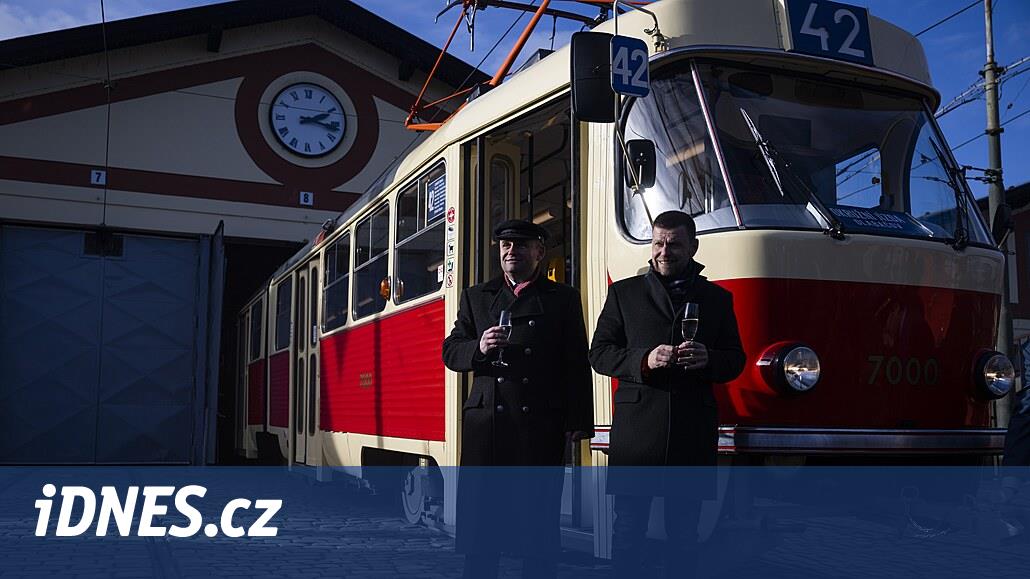Origin of the names of Czech cities: How Prague, Brno or Zlín came into being
They are based on forgotten words, natural conditions, but also the nature of the people who lived here, and sometimes also swearing. Ancient legends and language experts reveal the origin of the name of the largest cities in the Czech Republic.
Somewhat arid Prague
When the famous Czech chronicler Kosmas was born in 1045, Prague had existed for some centuries. And with it the legend of its founding, which Kosmas mentions in his notes.
The name is said to have originated when a certain man carved the threshold of his house many years ago, which was one of the first on the site of today’s Prague Castle. “Kosmas wrote in his chronicle at the time.
Where to look for the origin of the name of your villageIf you want to know the origin of the name of the village in the Czech Republic, you can find it in electronic form dictionary Antonín Profouse. The five-volume dictionary “Local Names in Bohemia: Their Origin, Origin, Meaning and Changes” was written by Profous in collaboration with Jan Svoboda and Vladimír Šmilauer. It was published between 1947 and 1960 and contains over 15,000 names of Czech towns and villages. |
The revivalist and philologist Josef Dobrovský in the 18th century derived the name from the river sills on the Vltava and the Brusnice stream. In that case, however, the capital would be called Prague or Prague. Researchers of the 19th century come up with versions that the name Prague is related to the word roast, a roasted, burnt, eradicated forest, used to create a new dwelling.
Another linguist of speculation was added by the Czech linguist Antonín Profous. In his lifelong, extraordinarily comprehensive so-called Profous’s Dictionary, in which he examines the origin of the names of Czech municipalities and cities, he writes:
Brno mud and clay
In addition to the already mentioned Prague, Princess Libuše also foretold the founding of the city of Brno, saying: “There you will find a man with a leg. Build a city there and name it Brno. “
It would be an interesting legend, but this prophecy appears only in the theatrical play FR Čech Girl’s War. So, of course, it’s a joke. Linguists have their theories.
The jokers renamed Liberec in 2008 to Synerov, after the name of the company, which was associated with some controversial buildings and projects.
While Prague was founded in a dry place, Brno probably in a damp, swampy place, which corresponds to the Old Slovak word brn, ie mud, clay, clay or sludge. Such a version is also supported by the designations of some local parts of Brno – Slatina, Hlinky (clay pit), Žabovřesky (ie the place where frogs scream) or Komárov, an area with mosquitoes.
On the contrary, according to experts, the name Brno is incorrectly derived from the Celtic word Eburodunom and the Germanic Brunne (well).
“Submissive” Pilsen
The name Plzeň used to bear the town we now know as Starý Plzenec. However, when in the past this settlement could no longer adequately protect the safety of the nearby country path, a new Pilsen, then called the New Pilsen, was founded in the neighborhood around 1295.
In order not to confuse the cities, the original Pilsen was given the nickname Stará and, according to the “guy-boy” model, the diminutive suffix -ec, which created Starý Plzenec.
The very origin of the name Pilsen as such has several versions. For example, the fact that the settlement originated in a “Pilsen”, slippery and humid place. The medieval variant is the origin of the word snail, so many snails lived here. But the city should be called Plzen.
Weekly 5plus2Free every Friday |
Or that it originated from the Russian “Pilsen”, ie landslide or rampart. Antonín Profous comes up with an original explanation. Pilsen is said to be named after the personal name Pilsen, the so-called Pilsen Castle or court.
“The Czech name Plzen meant crawling, crawling and figuratively submissive,” explains the linguist.
Zlín as a bad person and a victim
Let’s stay in Moravia for a while, move to Wallachia with its center in Zlín. This name is first mentioned in 1322 as Slyn. It was derived from the Old Bohemian, perhaps mainly masculine, personal name of Evil, which meant “evil man”.
So the gas was Evil’s court or property. From the adjective evil, several personal names arose in Czech, such as Zlech, and transferred to the village, Zlechov. Old Zlín legends derive the name of their city from the bad events that happened to the people there, or according to the clayey “saliva” soil.
Jihlava full of hedgehogs
Today, the hedgehog’s coat of arms is dominated by a hedgehog. It is his needles quite possibly still the name of today’s Vysočina center. Jihlava, formerly a river and then a settlement, used to be written as Jiglava, so linguists follow the interpretation of the Old Slavic word “jegla” or needle.
The inhabitants of that time called the pointed stones on the river day with needles. It is also possible that Jihlava was named after the Langobard tribe, which lived here in the 6th century and then went to the north of Italy. Their words “Igulaha” meant “hedgehog stream”.
According to another interpretation, the river was named after the needles that floated on the bottom and on the surface. However, there are rumors that workers found a large number of hedgehogs when founding the city. Both the Czechs and the Moravians called the petty omnivore Gehlak, and Gehlawa was born from that. The Germans call hedgehogs “Igel” and still call Jihlava Iglau.
What do the names of other regional cities come from?Carlsbad founded as Karlsbad by the Czech King Charles IV., the town has long been popularly called Warmbad, ie a hot bath. Czech Budejovice they were named after a nearby settlement, whose name in the 13th century was Budivojovice, ie the settlement of the people of Budivojov – after the name of the founder of the settlement and the court judge Budivoj. Ostrava has been called after the Ostravice River for more than 750 years, ie a stream with a sharp, respectively fast and wild current. Olomouc its origin is unclear. One version says that it got its name from a certain Olmút, ie as Olmút’s castle or court. There are also possibilities of the Old Slavic words “ol” (beer) and “mútit”, ie noise. Pardubice was called Pordubice in the 14th century. Perhaps the name was brought by Cistercian monks from Poland, the incoming leader was named Porydęb. Ústí nad Labem is named after the confluence of the Elbe and Bílina from the Old Czech word “ustie”. Hradec Králové was first called Hradec, ie “smaller castle”. At the moment when it became the dowry town of Czech queens, the second part of the name was added. Liberec has been called Reichenberg since its foundation, ie in translation Rich Mountain. But it was only a wish of the German colonists, the settlement was said to be very poor. Nevertheless, it developed and over the centuries the name changed to Liberec in various language ways. |




